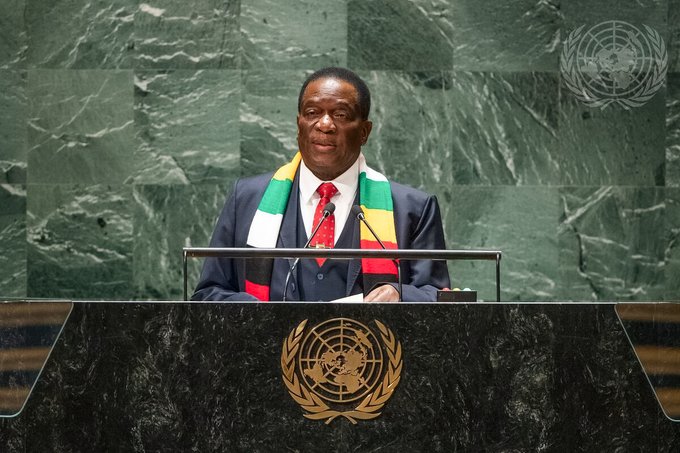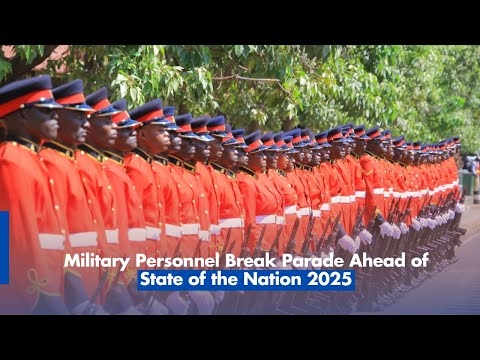
 Zimbabwe President Emmerson Mnangagwa. /X
Zimbabwe President Emmerson Mnangagwa. /XZimbabwe has formally submitted its candidature for a non-permanent seat on the United Nations Security Council for the 2027–2028 term, President Emmerson Mnangagwa announced on Wednesday.
A seat on the Security Council is widely regarded as a mark of diplomatic prestige, one that elevates a nation's international profile and underscores its commitment to global governance and multilateral cooperation.
It offers a valuable platform for high-level diplomacy, enabling countries to cultivate strategic relationships and enhance their standing on the world stage.
President Mnangagwa stated that Zimbabwe’s focus, if elected, would centre on regional cooperation, peace and advancing the agenda for women and youth.
"We will focus on peace, security, silencing guns, regional cooperation, and the women & youth agenda," he wrote on X.
He expressed gratitude for the unanimous endorsement received from both the Southern African Development Community (SADC), which he chairs, and the African Union (AU), describing their support as a testament to Zimbabwe’s regional credibility.
Non-permanent members serve in the UN Security Council for a term of two years.
There are 10 non-permanent members in the Security Council, elected on a regional basis.
Kenya’s experience on the Council provides a notable precedent within the region.
The country has served three terms as a non-permanent member: in 1973–1974, 1997–1998, and most recently in 2021–2022.
Kenya secured its latest term following a second-round vote against Djibouti in June 2020.
During its inaugural tenure, Kenya held the Council presidency in February 1973, and in its most recent term, it served alongside India, Ireland, Mexico, and Norway.
Membership of the Security Council affords countries the opportunity to influence global security decisions, engage in diplomatic negotiations at the highest level, and advocate for regional priorities and policy goals.
It also enhances national visibility and provides a forum to contribute meaningfully to the development of international norms and resolutions.
Zimbabwe’s bid reflects its aspiration to play a more active role in shaping the global peace and security agenda, particularly from an African perspective.














![[PHOTOS] Betty Bayo laid to rest in Kiambu](/_next/image?url=https%3A%2F%2Fcdn.radioafrica.digital%2Fimage%2F2025%2F11%2F3b166e2e-d964-4503-8096-6b954dee1bd0.jpg&w=3840&q=100)


